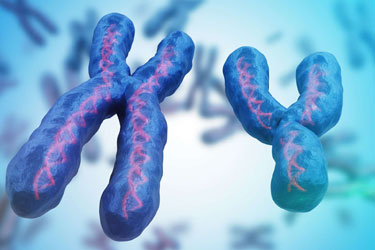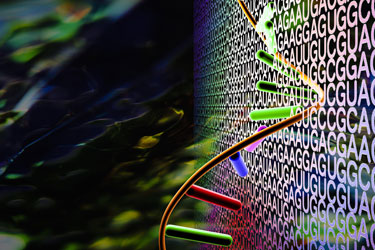Complete Chromosome Sequences of Non-Human Primates Released for the First Time
Reveals significant differences in primate Y chromosomes
An international collaborative team led by Pennsylvania State University and the National Human Genome Research Institute has generated complete chromosome sequences of non-human primates for the first time, and the relevant paper was published in the 29th issue of the journal Nature. The sequences reveal significant differences between the Y chromosomes of different species, showing their rapid evolutionary history, and also reveal previously unstudied regions of the hominid genome, providing important insights into species diversity and evolution.

Y chromosome variability across species
Among the six species of apes, the Y chromosome shows much greater variability in a variety of characteristics (including size) than the X. The number of nucleotide letters in the X chromosome ranges from 154 million in the chimpanzee to 178 million in the gorilla, with a difference of about 24 million, compared to the Y chromosome, which ranges from 30 million in the sympatric ape to 68 million in the Sumatran orangutan, with a difference of about 38 million. , a difference of about 38 million.
Comparison of the Y chromosome with the human X and Y chromosomes
The number of DNA sequences shared between species is also more variable on the Y chromosome. To compare ape chromosome sequences with human X and Y chromosomes, researchers used a computational method called “matching. The study found that more than 90 percent of ape X chromosome sequences were successfully compared to the human X chromosome, suggesting that the X chromosome has evolved slowly over millions of years. In contrast, only 14%-27% of ape Y chromosome sequences were successfully aligned with the human Y chromosome.
Evolutionary rate of the Y chromosome
In addition, on the Y chromosome, the percentage of the chromosome occupied by repetitive sequences is highly variable. Depending on the species, repetitive sequences make up 62%-66% of the X chromosome and 71%-85% of the Y chromosome. Katerina Markova, a professor at Pennsylvania State University who led the study, said it was very surprising how different the Y chromosomes of these species are. Some of these species diverged from the human lineage only 7 million years ago, which is not a long time from an evolutionary perspective, suggesting that the Y chromosome evolved very quickly.
MORE FROM WIRED

- Apple's fall event: iPhone 16 series makes a stunning debut

- Space-Time Metasurfaces: Unlocking a New Future for Wireless Communications and Optical Applications

- Novel RNA Construction Module Enables Efficient Production of High-Density RNA Microarrays
- Aug,30,2024

- Innovative Applications of Drone Technology in Agriculture
- Aug,21,2024

- OpenAI Launches SearchGPT, an Innovative AI Search Engine
- Aug,19,2024

- Google Pixel 8A: AI technology-enhanced, the king of price-performance ratio
- Aug,07,2024

- Application of 5G in Intelligent Transportation System
- Aug,01,2024